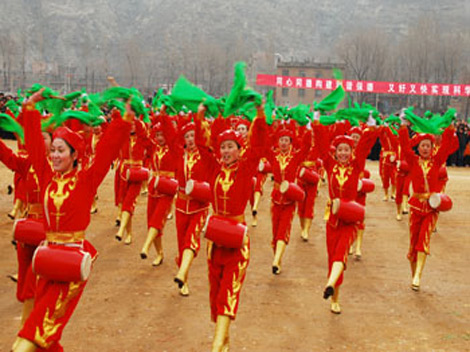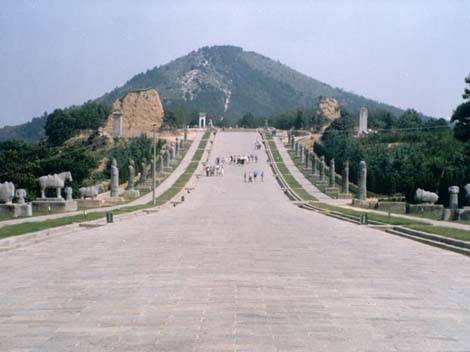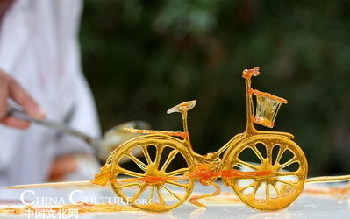| Home > China Feature |
Background of the Battle of Yongqiu
An Lushan had enjoyed many successes early on in his revolution. His army numbered more than 160,000, and was growing rapidly. In the fall of 755, An Lushan won a major victory at Luoyang, the eastern capital of the Tang Dynasty. And with civilians losing faith in the Tang Dynasty, and more people and generals joining An Lushan's New Great Yan Dynasty every day, it seemed that the Tang Dynasty was near its end. An Lushan now sets his eyes on Chang'an, the capital of Tang.
Suiyang was of great military significance. If Tang could defend this area, An Lushan's influence would be limited to the north for the meanwhile. This would give Tang enough time to prepare defences further south. If An Lushan conquered this area quickly, he would be free to conquer the rest of the resourceful southern China.
At this time, the governor of the Suiyang District, named Yang Wan Shi (杨万石), decided to surrender to An Lushan. The governor of Yongqiu, named Linghu Chao (令狐潮), agreed with the surrender after the fall of Luoyang, which in his view deemed the war hopeless. The army commander of Suiyang Fortress at this time was Zhang Xun. He refused to follow Yang Wan Shi's surrender orders, and instead gathered around 3,000 citizens and soldiers to combat the rebels.
Zhang Xun noticed that if Yongqiu remained in Au Lushan's control, Suiyang would not be safe for much longer. As a result, he led an army of around 2,000 men to besiege the weakly defended Yongqiu. At this time, Linghu Chao had imprisoned a few hundred loyal Tang soldiers within the fortress. To Zhang Xun's luck, these prisoners were able to escape (probably with the help of civilians or other uncaptured loyal soldiers), and caused massive chaos within the fortress. Zhang Xun took this opportunity to besiege the fortress. Yongqiu fell to Zhang Xun very quickly, and Linghu Chao escaped.
In February, Linghu Chao led 15,000 rebels back to Yongqiu, to try to take back the fortress. Zhang Xun however, lefts no weakness in his defence, with around 3,000 men. At the end of this first encounter, Linghu Chao had lost more than 10,000 men, and he was forced to retreat.
In March, Linghu Chao returned to besiege Yongqiu, with 40,000 rebels that he borrowed from Au Lushan. Only about 2,000 Tang soldiers were still capable of defending Yongqiu.
Art
 more
moreYicheng Hua Gu
The Flower Drum 花鼓 of southern Shanxi Province is a kind of folk d...

Sculpture in Qianling Mausoleum
The sculpture of Qianling Mausoleum is the main relic of the ground ...

A Sweet Art:Sugar Painting
In and around China’s southwestern Sichuan Province, it is usual to ...

Custom
 more
moreWeb Dictionary
Martial Arts
Wuxia, a Popular Culture for Most Chinese-Speaki...
Wuxia (武侠) is a broad genre of Chinese fiction that concerns its...
“Chinese Kung Fu Hot”
“Part the Wild Horse’s Maneton Both Sides”, “White Crane Spreads Its...
“Chinese Kung Fu Hot” in Alfred University
“Part the Wild Horse’s Maneton Both Sides”, “White Crane Spreads Its...





 print
print  email
email  Favorite
Favorite  Transtlate
Transtlate 







